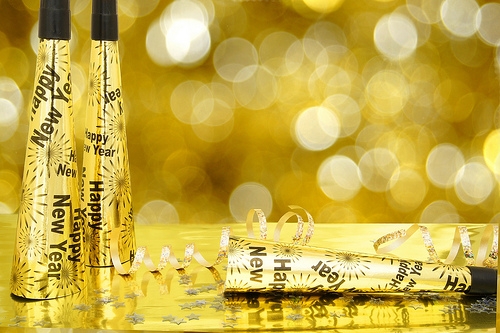Good Dental Hygiene Gives You Better Overall Health
January 12th, 2023

What do you think of when you hear the term dental or oral hygiene? Brushing and flossing tend to come to mind, since that is what the terms imply.
What you might not know, however, is that good dental hygiene involves much more than just your mouth. That’s the tip of the iceberg … just a piece of the complex puzzle that is the human body.
Simply put, you cannot be fully healthy if you don’t have good oral health. Studies have shown that oral health and body health are closely linked and in fact almost impossible to define as separate phenomena.
Take gum disease, for example. It’s one of the most common dental infections, but it doesn’t just affect your gums. According to the Academy of General Dentistry, gum disease can be directly linked to more serious complications such as strokes and heart disease. Doesn’t that make you want to floss a little more often?
This goes the other way, too. Many oral events like sores, swollen gums, and dry mouth syndrome, which might seem fairly trivial and even harmless, may be signals of a much bigger problem: possibly leukemia, kidney disease, diabetes, or pancreatic cancer.
Now that you’ve been made aware of just how vital dental health is for your overall health (and vice versa), the best thing to do is what you’re probably already doing: making sure you brush and floss, as well as maintain a well-balanced diet. It’s also smart to keep away from cigarettes and tobacco, because both are known to contribute to periodontal disease.
In addition, be sure to keep getting your teeth cleaned every six months! If you’re due for a cleaning, give our Anthem office a call to schedule an appointment at Daisy Mountain Dentistry.
Healthy Diet, Healthier Gums?
January 5th, 2023

Since gum disease is one of the most common adult diseases, it’s no wonder Drs. Peter Vogel, Vijal Vadecha and our team stress the importance of prevention. Effective brushing and flossing, regular dental appointments for exams and cleanings, and a prompt visit to our Anthem dental office if you notice symptoms of gingivitis (early gum disease) are all important steps to prevent more serious periodontal disease from developing.
One more step you can add to keep your gums their healthiest? Add some gum-healthy foods to your shopping cart! To see how your diet can help prevent gum disease, let’s look at what can cause gum disease.
When plaque builds up between teeth and gums, the bacteria found in plaque cause our gum tissue to become inflamed, swollen, and painful. Left untreated, the gums pull away from the teeth, leaving pockets where bacteria collect and can cause infection.
Prolonged inflammation can lead to the destruction of gum tissue and the connective tissues which anchor our teeth to the alveolar bone in the jaw. Bone loss and even tooth loss can result from untreated gum disease.
Fortunately for us, there are foods that fight inflammation, help with healing, and strengthen and support gum tissue before problems develop. Let’s take a look at some of the valuable gum-healthy nutrients you can add to your diet with some tasty additions to your shopping list:
- Vitamin A
This vitamin is essential for the health and healing of mucous membranes, including both our gums and the soft membranes in our mouths. Vitamin A is found in animal products such as dairy foods, meat, and liver, or formed in the body from beta-carotenes, found in plant foods such as carrots, peppers, pumpkin, squash, and sweet potatoes.
- Vitamin C
Vitamin C is one of the so-called “essential nutrients.” These are nutrients that are necessary for our bodies to function properly, and which can only be supplied in our diets. Vitamin C is needed to help our bodies produce collagen, the substance that provides support and structure to our tissues. It also helps us repair tissue, and is a powerful antioxidant. One of the obvious signs that your diet doesn’t contain enough vitamin C is inflamed and bleeding gums.
When we think vitamin C, we instantly picture citrus fruits. Oranges, lemons, limes, grapefruit, and all their cousins are a wonderful source of vitamin C. Looking for a little more variety? You’re in luck! Fruit fans can load up on strawberries, kiwi fruit, mangos, and papayas. Love your veggies? Red peppers, kale, cauliflower, Brussels sprouts, and broccoli contain more vitamin C per serving than a medium orange.
- Vitamin D
Vitamin D, of course, is essential for dental health because it helps us absorb the calcium that keep teeth (and bones) strong. And there’s more! It helps the body fight infection and reduce inflammation, and studies have suggested a link between vitamin D and better gum health.
Sunlight exposure leads our bodies to produce vitamin D naturally, but it is available in foods as well. Fatty fish, such as salmon, tuna, and herring, are a rich source of the vitamin, as are cod liver oil and egg yolks. It’s also available in foods fortified with vitamin D, such as cow’s milk, soy milk, orange juice, and even many cereals. And while you’re getting the benefit of vitamin D from dairy, you’re also enjoying the proteins they contain, one of which helps neutralize acids in the mouth that can irritate gums. Bonus!
- Iron
Iron deficiency can lead to a common form of anemia, where your body isn’t creating enough red blood cells to deliver the oxygen your tissues need. (In fact, one of the most noticeable symptoms of anemia is pale gums.) This condition can cause a number of problems, including an immune system that doesn’t work as well as it should. A strong immune system helps us fight infection, including gum disease and other oral infections.
A diet rich in iron can help prevent anemia. We absorb the most iron from foods such as meat, eggs, and fish, but iron is also present in beans, lentils, leafy greens, whole grains, nuts, and prunes if you’re looking for flavorful vegetarian options.
- Omega-3s
Research has shown a possible relationship between getting the recommended dietary amounts of omega-3s and a lower occurrence of periodontitis. In other studies, omega-3s have shown promise in reducing the periodontal inflammation that can lead to severe gum disease.
Our bodies can’t produce omega-3 fatty acids on their own, but fatty fish such as salmon, tuna, herring, and sardines, a variety of high-fat seeds and nuts, and plant oils contain several different types of omega-3 fatty acids. Some foods are fortified with omega-3s, or your doctor might recommend fish oil (and algae oil for vegetarians) as a supplement.
Speaking of supplements, why not just add vitamin, mineral, and other nutritional supplements to our daily diet? Believe it or not, there can actually be too much of a good thing. Body chemistry requires balance, so talk to your doctor about whether or not supplements are necessary in your particular diet, and just what kinds and how much to take.
Whew! That’s a lot to think about for one shopping cart, but that’s just a small portion of the many foods—and the many vitamins and minerals—you can add to your menu to support oral health in a tasty, effective, and positive way.
After all, when we think about the “do’s and don’ts” of a dental-healthy diet, it’s all too often a collection of “don’ts.” Don’t eat a lot of sugar. Avoid acidic foods and beverages. Cut down on refined carbs. And all of those suggestions are important, because the early stages of gingivitis are often easy to miss.
But let’s not forget the things we can actually do to be proactive with our gum health. Besides good dental hygiene and regular checkups at our Anthem office, eating a well-balanced diet helps keep your gums their healthiest—and while we can do a lot to treat gum disease, the very best treatment of all is prevention!
I drink a lot of coffee. Could it be hurting my smile?
January 5th, 2023

At Daisy Mountain Dentistry, we know most of our patients enjoy a cup of coffee or two throughout the day. But what many of you don’t know is that coffee can be especially tough on your teeth because tannic acid (the substance that makes the dark color) etches into the pits and grooves of tooth enamel, staining your pearly whites and being generally detrimental to your smile.
Coffee is one of the most popular beverages in the world, with more than 50 percent of people drinking a cup daily. Other foods and drinks such as wine, chocolate-flavored beverages, and soft drinks can all cause tooth enamel discolorations. A hot cup of Joe, however, goes one step farther: extreme temperature changes in your mouth can cause teeth to expand and contract. This allows stains to penetrate deep into the micro-cracks of your tooth enamel.
Additionally, caffeine is considered a diuretic, which means it causes the body to lose fluids. So when you enjoy coffee or any kind of caffeinated beverage, it slows the production of saliva and causes dry mouth, which can potentially lead to bad breath and even tooth decay.
If you just can't make it through the day without a cup of java, we encourage you to consider these tips to help make sure your teeth stay in tip-top shape:
- Drink a glass of water with your coffee or rinse with a glass of water after every cup. Not only does it help neutralize and rinse away the acid left behind from the coffee, but it also helps replenish fluids drawn out of your body by caffeine.
- Chew gum after you drink coffee. Chewing gum will help keep your saliva production up and prevent dry mouth.
- Enjoy your beverage with a straw so that tannins don’t make contact with your front upper and lower teeth.
- Switch to decaf. Each cup of regular coffee you drink has an average of 110 milligrams of caffeine. Decaf has the same great taste with only two to 12 milligrams of caffeine.
Drs. Peter Vogel, Vijal Vadecha and our team also invite you to visit our convenient Anthem office for whitening options. We can help bleach your teeth with proven and professional products. To learn more about whitening options available at Daisy Mountain Dentistry, please give us a call!
New Year's Eve
December 29th, 2022

Watching the clock tick down the final seconds until midnight, many of us- Daisy Mountain Dentistry included- feel nostalgic about the passing year and hopeful about the new one to come. New Year’s Eve is one of the most widely celebrated holidays in the world, with over-the-top celebrations taking place in dozens of countries. The Gregorian calendar, which is widely used in Western nations and around the world, was implemented in 1582. Since that time, December 31st has marked the final day of the year, with midnight heralding the beginning of a brand new year. In the United States, New Year’s Day is a public holiday; government offices, schools, public organizations, and many businesses are closed for the day. Ponder the following fun facts as you think about your plans for the holiday:
- Approximately one billion people watch the New Year’s Eve ball drop in Times Square, New York City. This televised event is one of the most iconic New Year’s celebrations in the world. For many years, watching the ball drop meant tuning in to Dick Clark’s Rockin’ New Year’s Eve, an iconic television special dear to the hearts of many viewers.
- The idea for the New Year’s Eve ball came about because of a citywide ban on fireworks. Before 1907, when fireworks became illegal in New York City, celebrations included an elaborate fireworks show. The large, glittering, illuminated ball was developed as an alternative. Although the first ball was heavy at 700 pounds, the modern New Year’s Eve ball is made of Waterford crystal and tips the scale at six tons!
- The top five New Year’s resolutions are: to lose weight, quit smoking, get a new job, return to school, or increase personal savings. However, approximately 88% of New Year’s resolutions fail. But don’t let that discourage you! Resolutions are most likely to succeed when they are clear, achievable goals. Setting out a concrete plan to achieve your resolution also boosts your chances of success.
- Eating black-eyed peas on New Year’s Day is said to bring good fortune in the new year. Collard greens, cabbage, and ham hocks are also considered lucky foods to enjoy. Just steer clear of the chicken or turkey dinners; eating poultry is a bad omen for the year to come.
Whether you plan to stay in Anthem, or head out into the crowds to watch the ball drop in Times Square, New Year’s Eve is a time to enjoy friends and family. Send your loved ones well wishes for the New Year, and look for that special someone to share a midnight kiss with for good luck!


